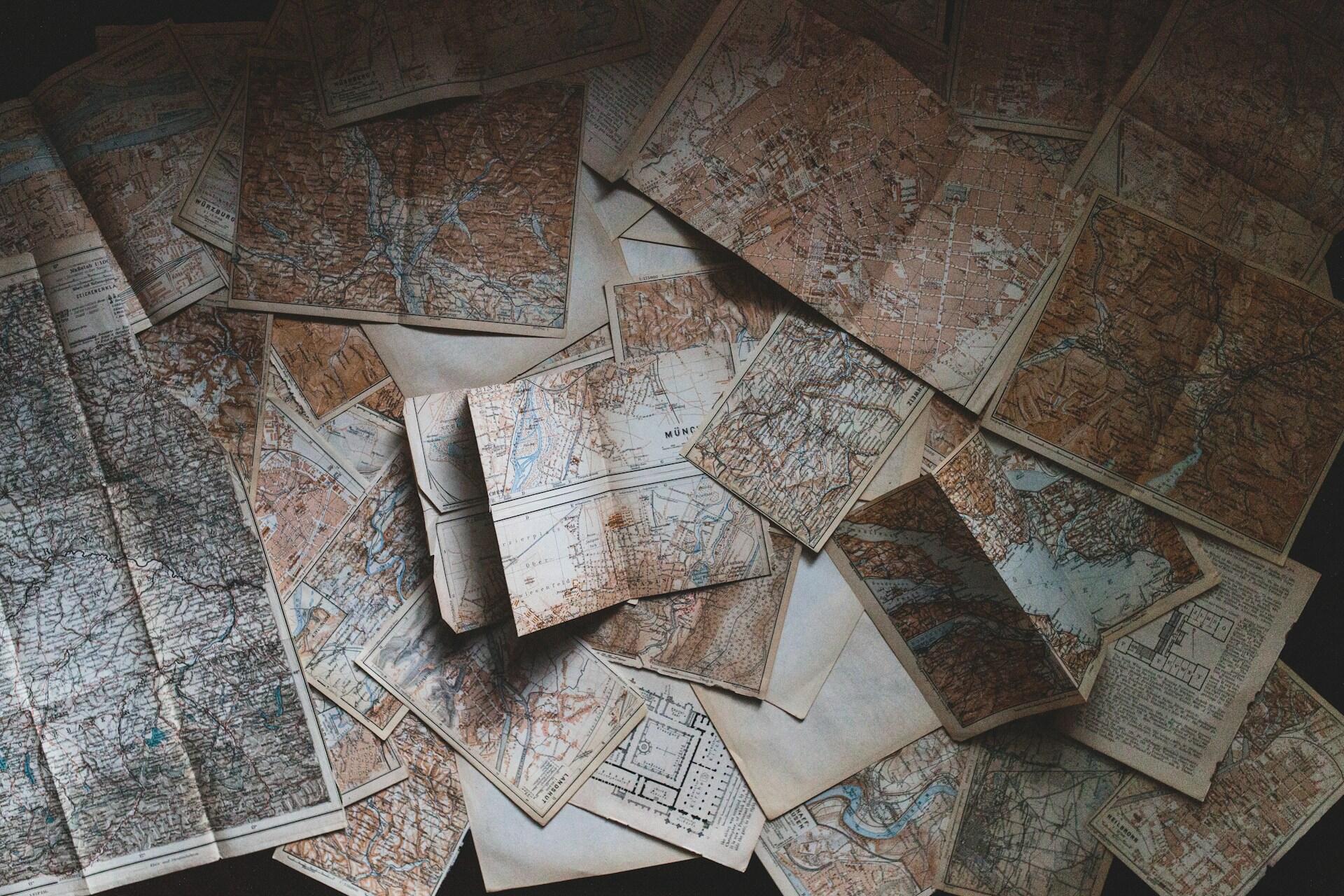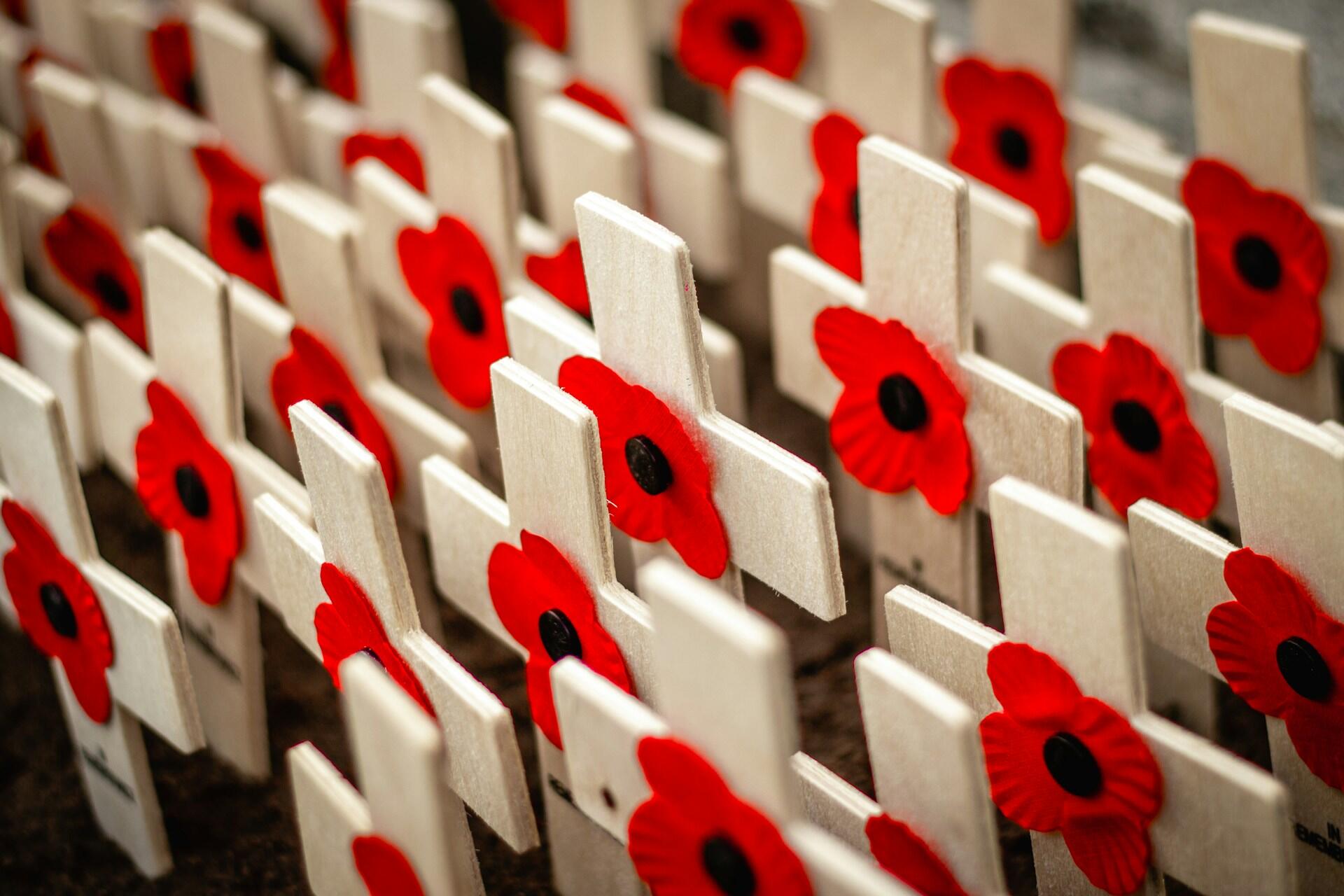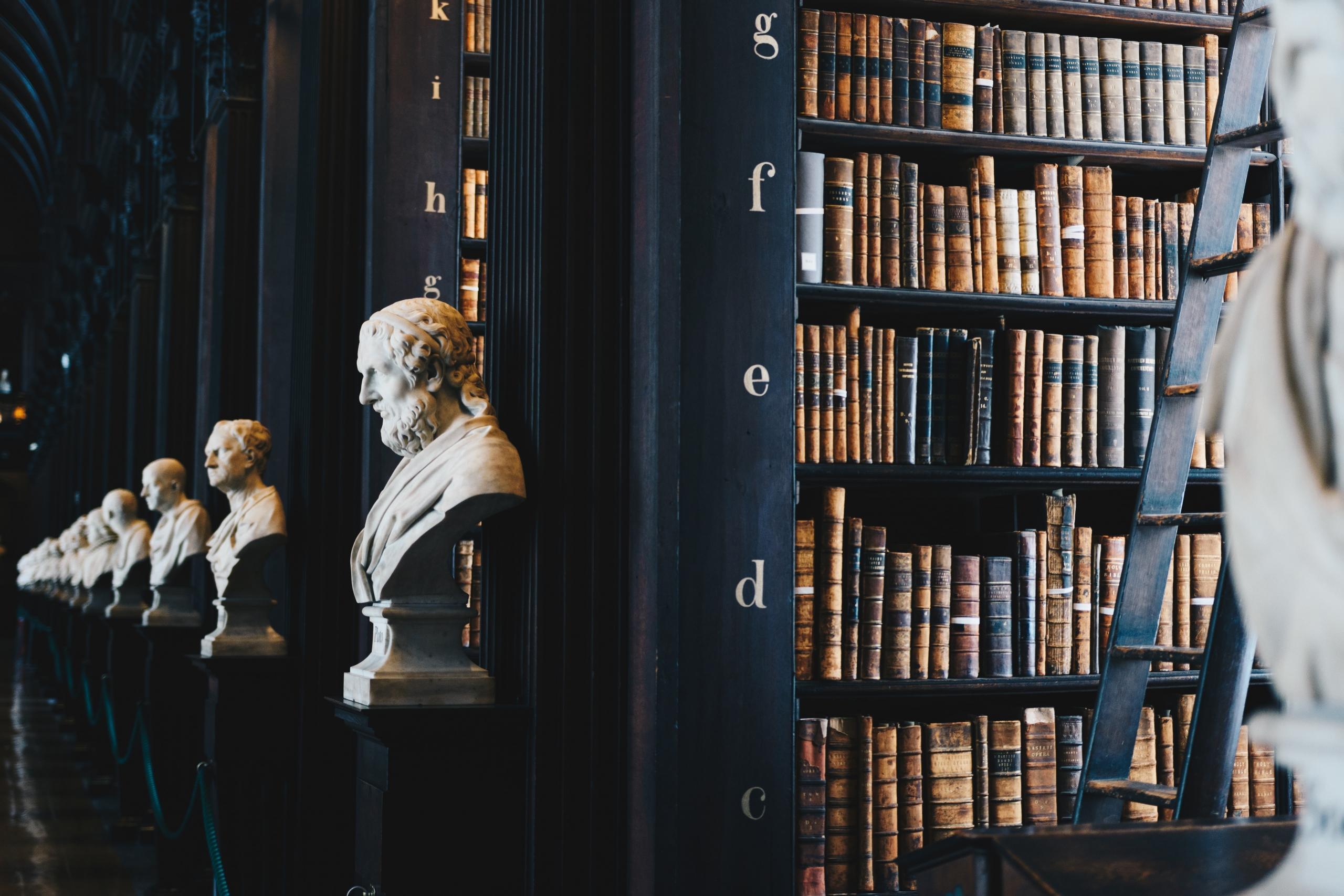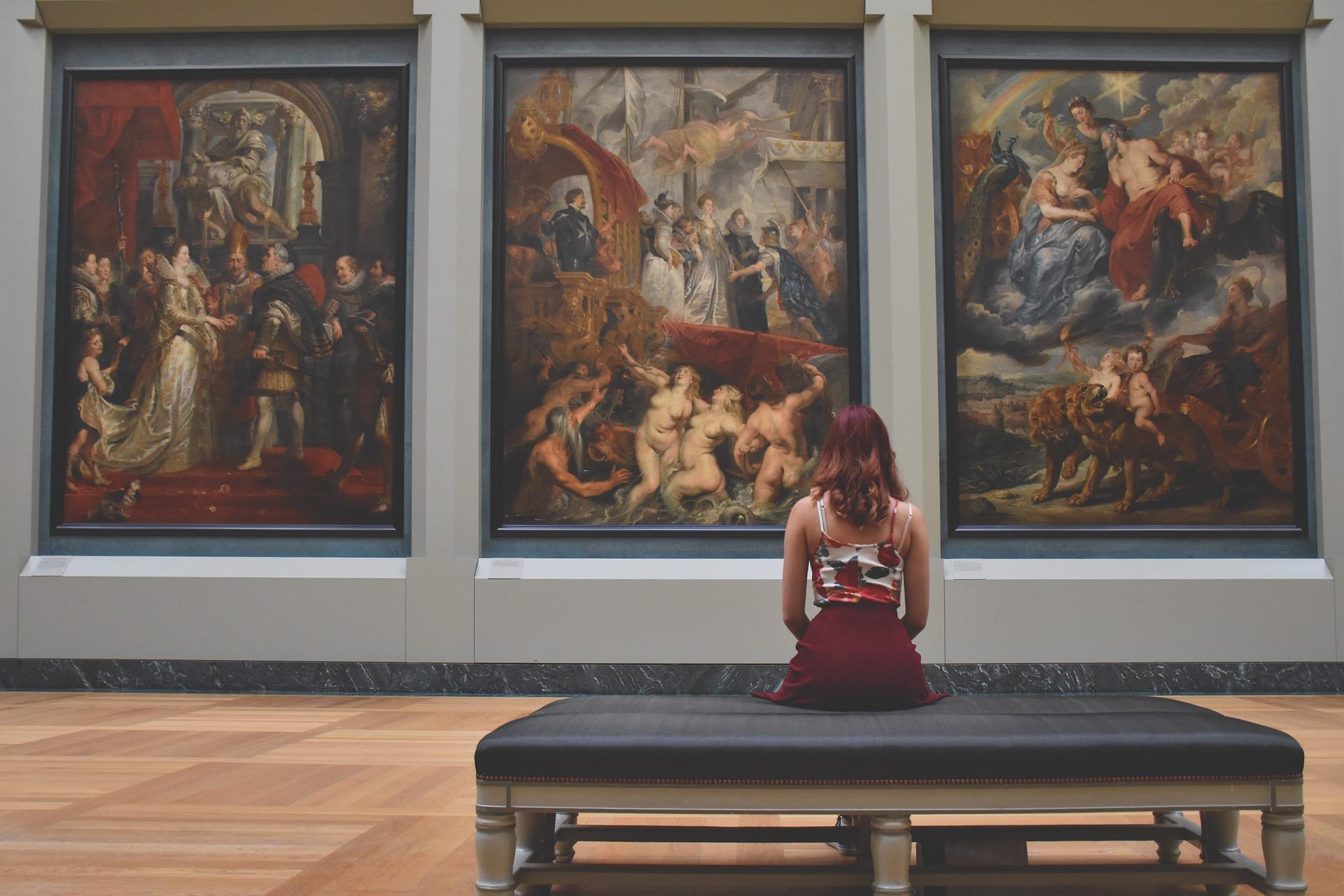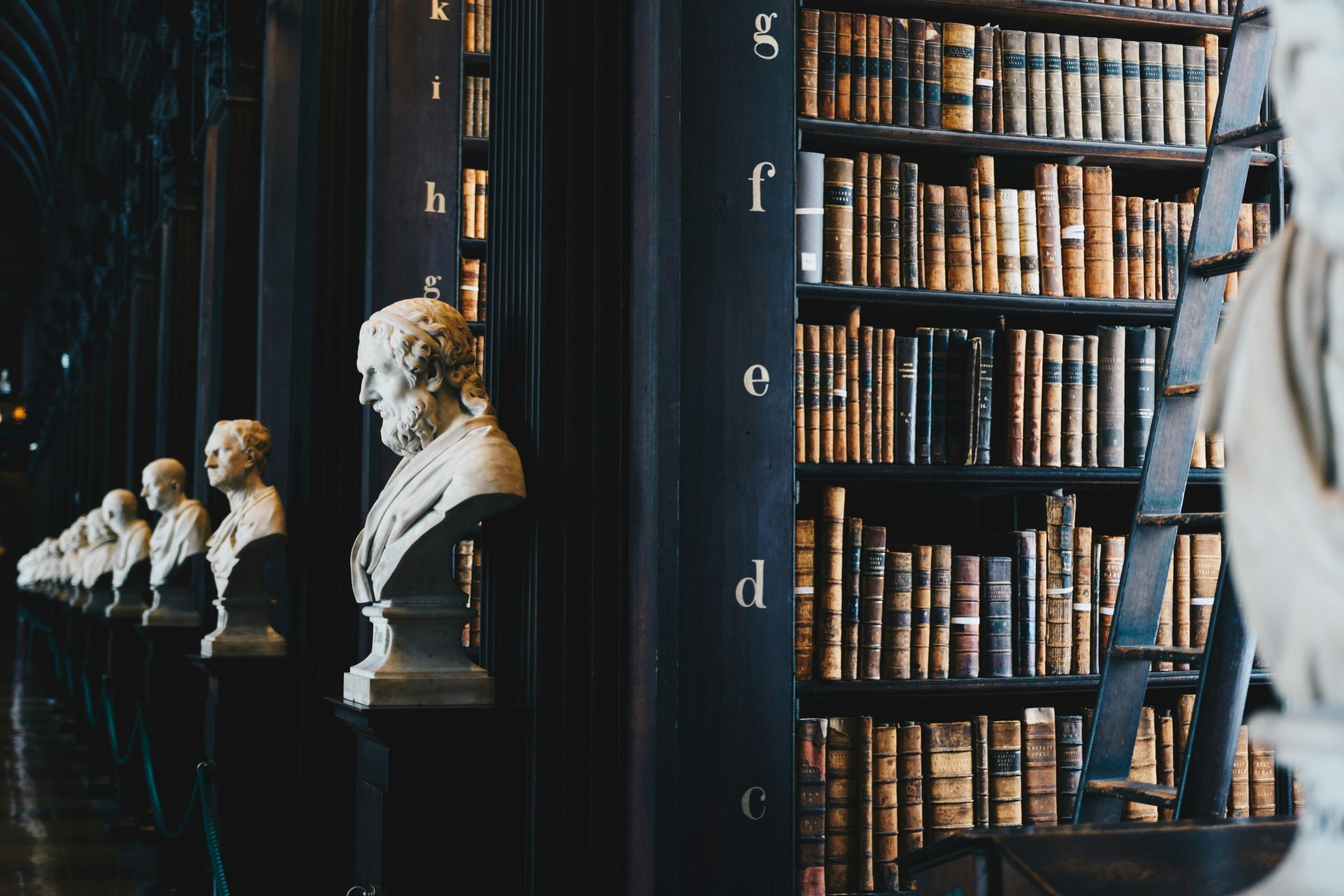What do you mean, countries' borders move? They’ve always been there!
Kevin O’Dell
The world we know today was shaped by the people, places, and decisions that transformed history, for better or worse. From the formation of the United States to the rise of Hitler in Germany, from revolutions in the East to nuclear tragedy in Japan. These moments shifted borders, destroyed empires, and redefined nations. Presidents, dictators, and revolutionaries all played their part, creating fragile alliances and national unions in the aftermath of their actions. Here are some of the most pivotal historical events that changed the world in recent history.

How History Still Shapes the World Around Us
People in general, but especially in developed countries, tend to view the world as static; unchanged since the dawn of time. This is a postulate that supposes the world is indeed an elaborately dressed stage with unchanging sets; today being all there ever was, and tomorrow being a continuation of today.
Because of that mindset, history is relegated to being an academic exercise; something learned in school but not important to the world today. In this article, Superprof draws lines: from the most impactful historical events to how our world and societies function today because of them.
The American Revolution
Would you believe that America became a nation of coffee drinkers because of tea?
Indeed, it was England’s interest in the East Indian Tea Company, a huge revenue generator that had started flagging, that prompted the British Parliament to levy taxes on the American colonies, including duties on tea.
Colonists’ outrage was not provoked by the taxation of everyday goods, including their favourite brewed beverage, but by the fact that they were being taxed in absentia.

Taxation without representation: nobody in Parliament represented the interests of the colonies; therefore, no taxes should be levied until a colonial representative sat in Parliament.
The Crown did not see matters from that perspective. They contended that the Colonies belonged to Britain and were populated by British subjects who were represented, just as every other British subject was.
Through a series of laws and military acts that spanned over 100 years, the Crown attempted to maintain its hold over the colonies.
Through a series of subversive and rebellious acts, the colonists fought back against heavy taxation, against unfair laws and, essentially, against meddling from distant Britain as they established their democratic government.
This phrase became the rallying cry of the American colonists in the 1760s and 1770s. It reflected their frustration at having to pay taxes imposed by a British Parliament in which they had no elected representatives.
The idea directly challenged the legitimacy of British control. It helped spark the American Revolution, one of the first major historical events that changed the world by inspiring future democratic movements globally.
Clashes between the British military and colonists became more violent, eventually leading to one man of the colonist militia to fire the shot heard ‘round the world.
It was this episode that shaped the uniquely American attitude, still evident today, which dictates the country’s political handling of world events.
The First World War

Strangely enough, the phrase the shot heard ‘round the world has been associated with both the American Revolution and World War I.
It was an alignment of coincidences that permitted young Gavrilo Princip, armed with a handgun, to assassinate the Archduke of Austria and his wife after the initial attempt to end their lives by grenade failed.
The fallout of his act had swift repercussions, and not just for him!
Yes, though not alone. The assassination of Archduke Franz Ferdinand on June 28, 1914, set off a domino effect of alliances, fears, and long-simmering tensions. This single act, in the politically charged city of Sarajevo, became the ignition point for World War I.
The complex web of imperial interests and military obligations meant that once one nation mobilised, the rest followed. The war would go on to reshape national borders and empires, forever altering the course of global history.
The Austro-Hungarian Empire did not immediately take up arms and attack Serbia – their military forces were not prepared for a full-on assault or even a show of force.
Despite Germany’s urging to strike Serbia while global sympathy over the Archduke’s death ran high, Austria delivered to Serbia an impossible ultimatum. That gave Austria two days to marshal their resources.
Austria was also worried about Russia’s backing of the Serbs.
The Russians believed that Germany was behind Austria’s proposed attack on their Serb allies. Although their military stores and personnel were not ready for full-scale war either, at the very least, a show of might would be called for.
Do you wonder why nobody’s military was ready for full combat? It’s because everyone had been fighting in the decades leading up to the first world war!
Russia’s mobilisation emboldened Serbia, which then defied Austria. Meanwhile, Germany grew alarmed at the military buildup on its southeastern border and pledged to back Austria should any fighting occur.
Unfortunately, Germany had to turn towards France, which had quietly become Russia’s ally. When hostilities began over Serbia, the French mobilised.
That is to say: they withdrew their troops from their western border at Germany’s request but activated their reserve troops, leaving the Germans no choice but to activate theirs in preparation for combat.
The British Empire’s involvement in the First World War came from the realisation that isolation is neither politically, economically, nor strategically advisable.
Withdrawing from Splendid Isolation, Britain formed a conditional alliance with France. Soon after, because of Germany’s march towards their allies’ borders, we jumped into the fray, declaring war on Germany on August 4th, 1914.
And then, the world descended into chaos...
Here's the background to the First World War in more depth.
You are welcome to read a more exacting account of WW1 events.

The Russian Revolution
That two-dimensional title hardly signifies the depth and breadth of Russian discontent that had been brewing for so long!
Tsar Nicholas II, the last head of the Russian Empire, was destined to go down in the annals of history as a weak, incompetent ruler who was completely out of touch with the needs of his people.
Even worse: at several critical junctures, he ignored the advice given to him by those whose job it was to measure public sentiment and study political trends!
What is termed the Russian Revolution is two separate incidents that occurred in 1917, but their roots can be traced back to 1905.
A group of supplicants were approaching the Winter Palace in Petrograd, only to be fired upon by the extra troops the Tsar had ordered to guard the palace!
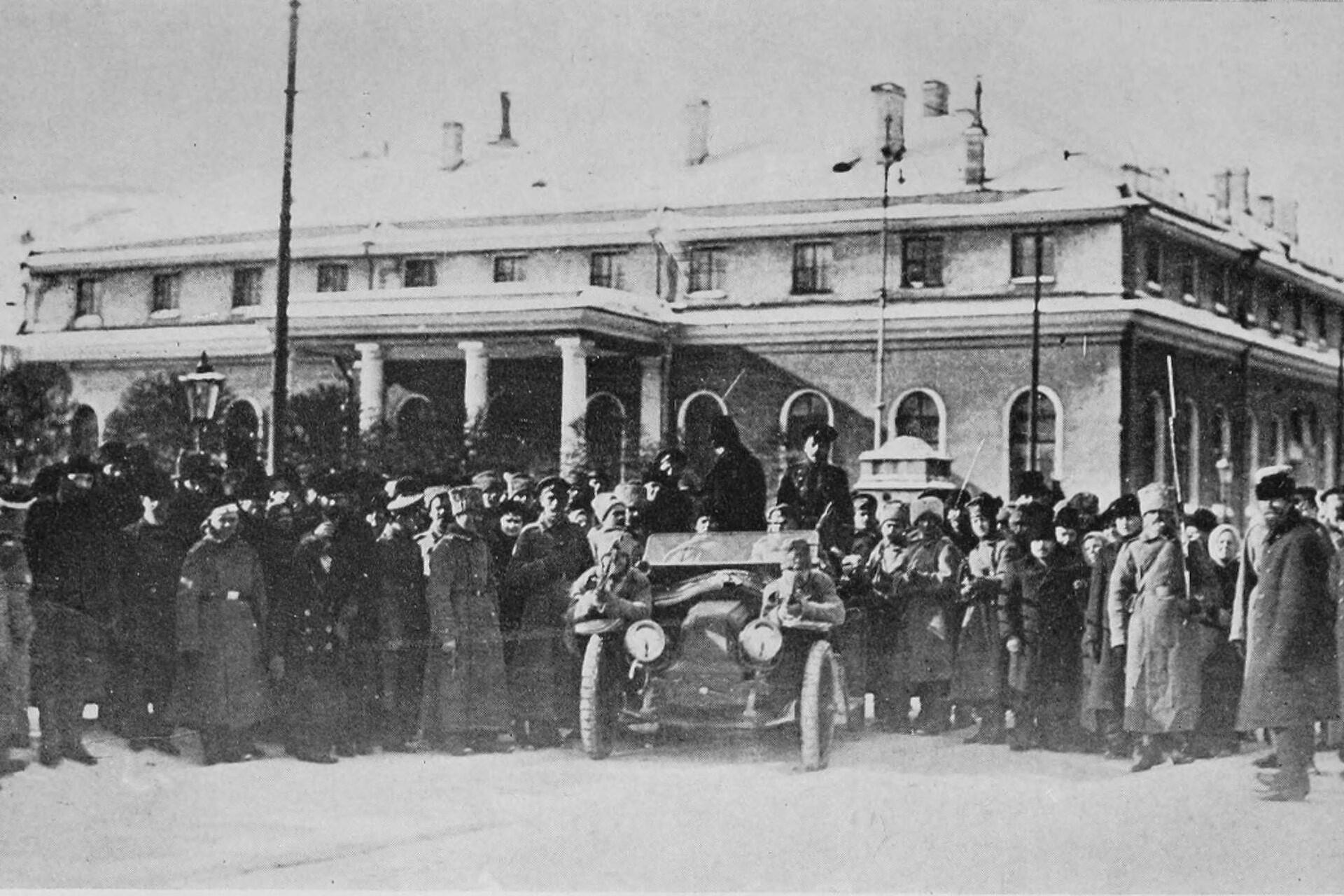
Granted, he was not in residence on Bloody Sunday, as that event came to be known, but he was widely blamed for having orchestrated the massacre.
A deep-seated sense of betrayal took hold of the peasants and the working class. Traditionally, the Tsar was seen as a friend to the working classes; one who would intercede on their behalf if asked to do so.
When World War I broke out, the Ottoman Empire joined the Central Powers, cutting off Russian trade routes and further deepening the economic crisis.
Exacerbating the country’s economic woes was the fact that, to fund the war effort, the government printed millions of dollars in currency, which drove inflation to the point that even well-paid workers struggled to buy food.
Perhaps the last insult Tsar Nicholas levelled was taking over military command in 1915.
Instead of overseeing state affairs, he implied that his generals were incompetent and led his troops through one defeat after another, culminating in his forced abdication on March 15, 1917.
Revolutions are the locomotives of history.
Karl Marx
Now learn about the dual revolutions that changed Russian politics and government.
The Great Depression
There is no doubt that the war to end all wars devastated the global economy but it quickly stabilised, and soon, many countries were enjoying at least stability if not prosperity. Enter the Roaring Twenties!
Daring women pushed the boundaries of convention, earning themselves the Flapper label. Soldiers, expansive in their role as returning war heroes, established the corporate culture we still labour under today.
Fantastic innovations in industry and infrastructure enabled many to enjoy relative comfort, while a select few lived in outright luxury.
Soon... soon, there was nothing more to buy – nobody needed two cars or two refrigerators. Gleaming automobiles and home appliances alike lingered on the showroom floor.
Banks started failing; nobody was borrowing money. Interest rates stayed high, causing a ripple of mistrust among investors. They soon quit buying, too, but their purchases were far bigger... far more speculative.
It was only a matter of time before the American economy burst under its unsustainable financial imbalance.
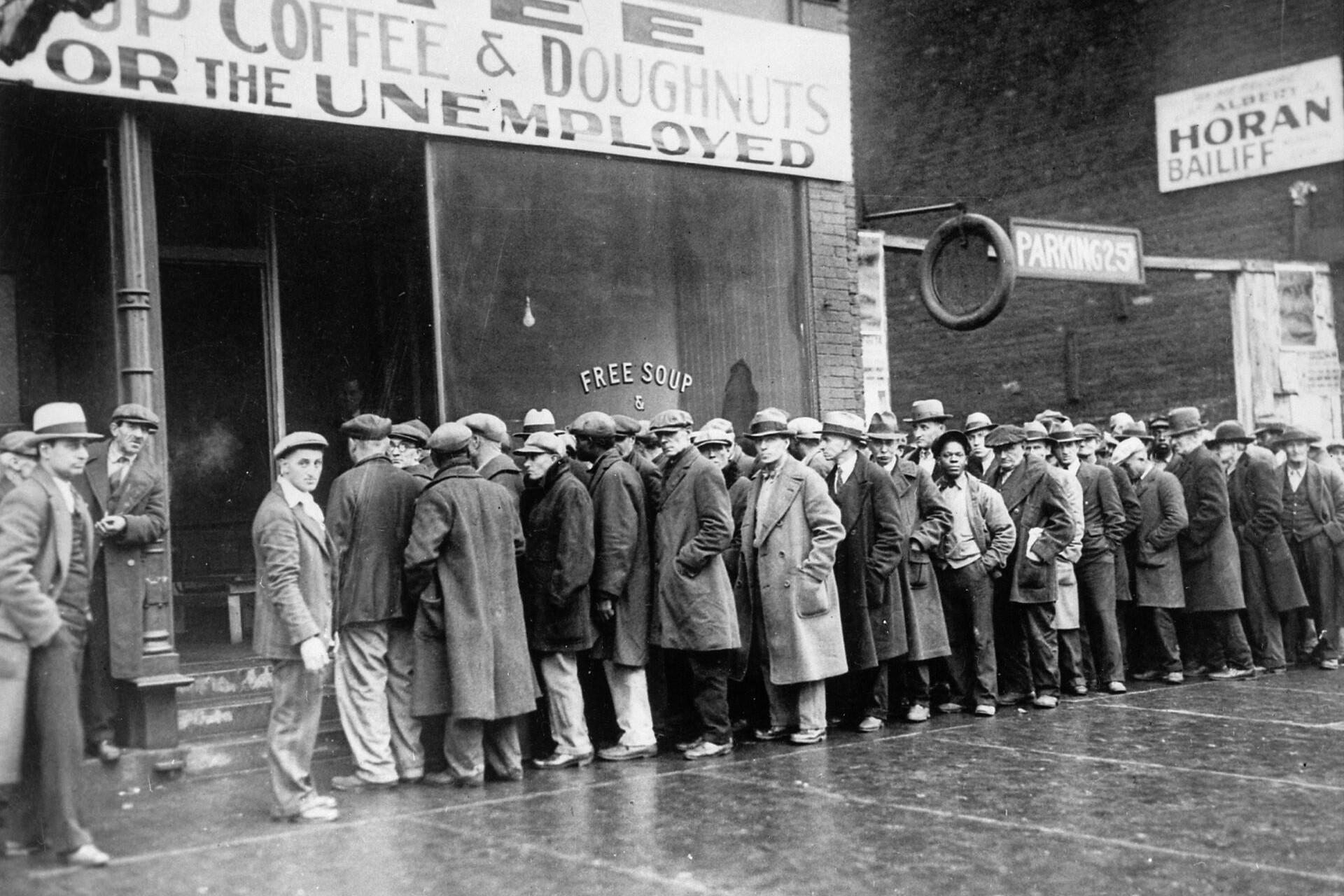
The stock market crashed on October 29th, 1929, shattering so magnificently that every single country in the world was affected to one degree or another.
On October 29, 1929, known as Black Tuesday, the New York Stock Exchange experienced a catastrophic collapse, wiping out millions of dollars in investments overnight.
By the 1920s, the United States had become the world’s largest creditor and economic engine. When its financial system faltered, countries that relied on American loans and trade found themselves spiralling into depression, too.
This interconnected collapse remains one of the most impactful economic events in world history.
And, just like that, the good times of the ‘20s were over. Around the world, people set in for years of hardship and hunger as the Great Depression ground on...
Nazi Germany
Germany’s term for the Roaring Twenties was The Golden Twenties.
Despite the staggering debt from World War I and the Weimar Republic government’s inability to control inflation, things started to improve after the introduction of their new currency.
It also helped that America gave them a reprieve on their war reparations…
Germany greatly enjoyed this period free from austerity. It afforded them a time of unprecedented liberalism and creativity, all of which served to boost the economy and citizens’ morale.
One man didn’t like it, though. From his jail cell in Munich, he dictated his plan to bring Germany back in line with his ideology.
Mirroring Napoleon's meteoric rise and desire for autonomous control of his country, after his release from prison in 1924, Hitler gained a following by preaching nationalism, Pan-Germanic sentiment and anti-semitism.
He was convinced German citizens wanted exactly what he promised them over and over again. Their roars of approval during his speeches validated his ideas.
A master of rhetoric, he drove public opinion in such a way that, by 1932, the Nazi party held the most government seats in the Reichstag.
From there, it only took a bit of persuasion for President Paul von Hindenburg to appoint him to the chancery.
Two minor governmental adjustments later, Adolf Hitler was singlehandedly running Nazi Germany...
The Second World War
Article 231 of the Treaty of Versailles (1919) states explicitly that Germany should never rearm.
Hitler felt that such a concession would leave Germany defenceless on the global stage, preventing it from ever becoming a world power.
To him and to many Germans, the terms of that treaty were unpalatable.
Once he gained control of the country, he set about rebuilding its economy, primarily through the manufacture of arms.
Funny how there was no oversight into his doings...
Nevertheless, now fully capable of military action, he led his troops in the invasion of Poland on September 1st, 1939. Thus began one of humankind’s darkest chapters.
The Axis powers versus the Allies: the bloodiest and costliest war of all, involving every nation on the globe and the oceans and skies as well.
Nations that didn’t know there was animosity towards them until devastating strikes – Japan at Pearl Harbor, Americans in Italy; suddenly, mere boys found themselves battling unimagined foes.
people were killed, wounded, or displaced.
Not only was World War II devastating in terms of human loss and economic impact, but it also profoundly shaped world politics for decades to come.
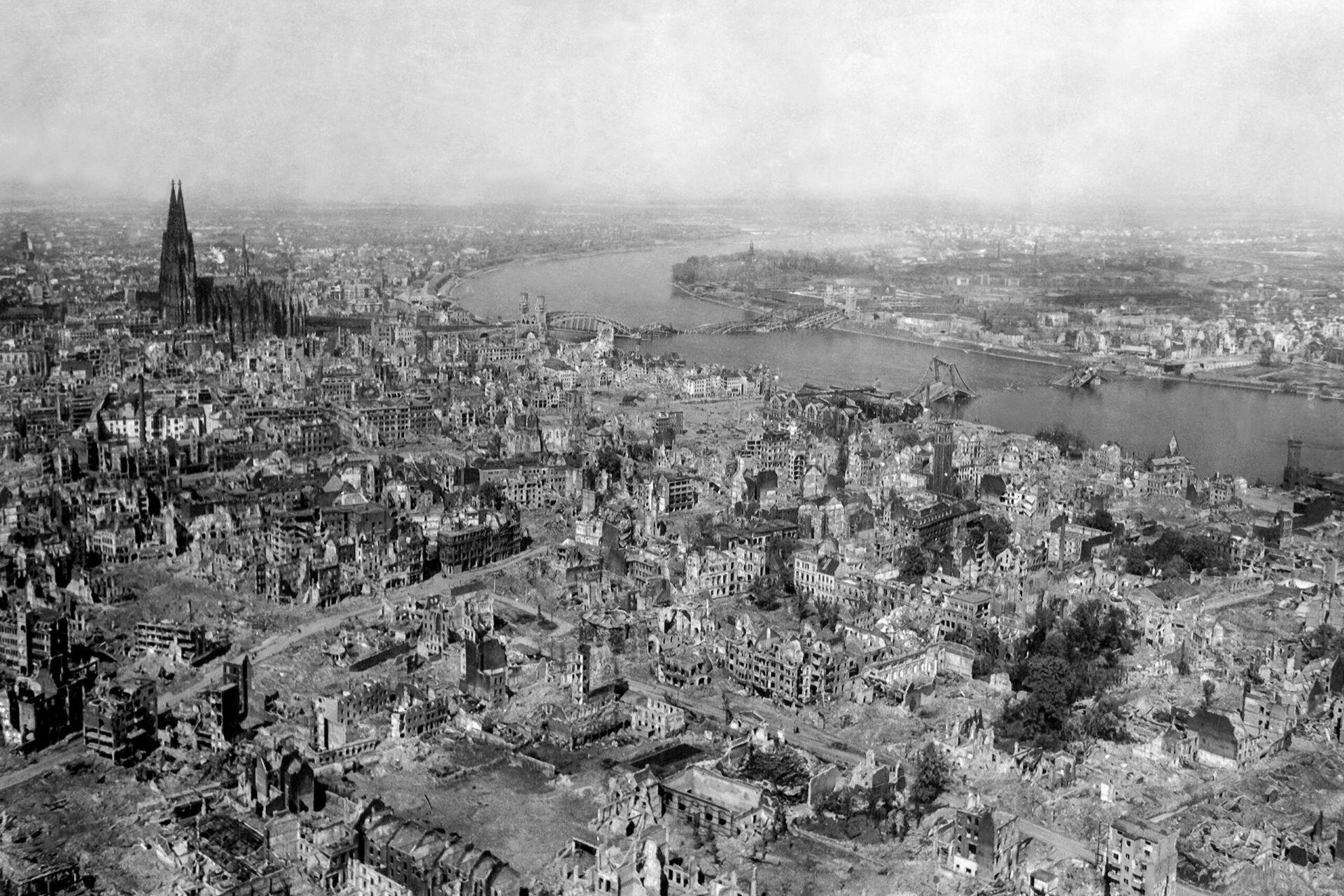
For more than 40 years, Germany remained divided by the Iron Curtain. The Cold War lasted as long, and today it is in danger of resuming.
Despite every single global power vowing never again to unleash the horror of the atomic bomb, some governments still play fast and loose with nuclear capability, technology made possible through the scramble to create the ultimate weapon that would finally end the war 73 years ago.
1775–1783
The American Revolution
American colonists fought for independence from British rule, giving birth to a new democratic nation, the United States.
1905
Bloody Sunday in Russia
Peaceful protestors were fired upon outside the Winter Palace, igniting the unrest that would lead to revolution.
1914–1918
The First World War
Triggered by the assassination of Archduke Franz Ferdinand, this global conflict redrew borders and collapsed empires.
1917
The Russian Revolution
Two revolutions in one year toppled the Tsarist regime and paved the way for the Soviet Union.
1929
The Wall Street Crash
The U.S. stock market collapse on October 29 triggered a global depression that reshaped economies worldwide.
1933
Hitler Rises to Power
Adolf Hitler became Chancellor of Germany, quickly consolidating power and transforming the state into a fascist dictatorship.
1939–1945
The Second World War
Beginning with the invasion of Poland, WWII became the deadliest conflict in history and redefined global power structures.
Those who cannot remember the past are condemned to repeat it.
George Santayana
All of these historic events both echo in our modern world and show precedents of current political philosophy.
Is Brexit a reversion to Splendid Isolation? Is Donald Trump’s desire for a border wall a chilling repeat of postwar Berlin? Are Iran’s and North Korea’s nuclear build-up a warning sign of future Nagasakis?
Only time will tell, but hopefully, more people will look to history to avoid disaster on a global scale.
If you'd like to learn more about history beyond the events covered here or dive deeper into these pivotal moments in modern history, why not study with a private tutor?
On Superprof, there are qualified and experienced history tutors who can help you learn more about history, whether it's for your studies or just a personal interest.
With most offering a first free session, you can always try a few potential options to find the one that's right for you, your preferred learning style, and budget. Just search for "history" on Superprof today!
Summarise with AI:

